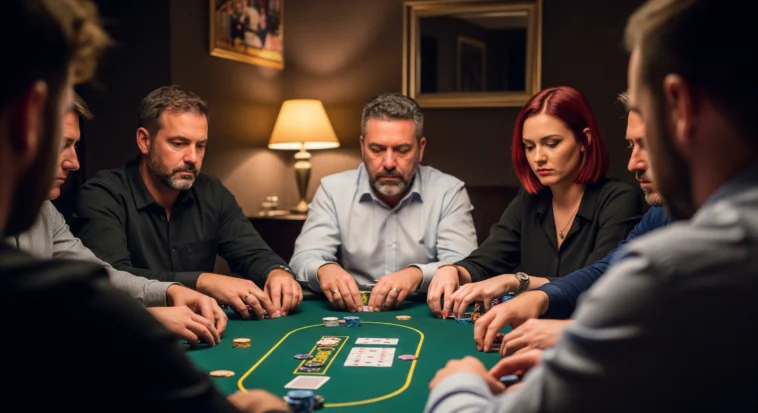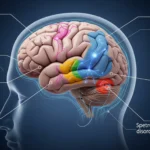
Gambling addiction affects millions, but less than 1 in 4 people get help.
That’s a big problem.
The good news? Research shows behavioral interventions can help people break the cycle and take back control.
This guide looks at the most effective, science-backed methods for treating gambling addiction—useful for professionals, those struggling, or anyone trying to help a loved one.
Understanding Gambling Addiction: More Than Just a Lack of Willpower
Gambling addiction isn’t about weak willpower.
It’s your brain’s reward system hacked by dopamine hits—same as drugs, just without the needles.
The DSM-5 (psychiatry’s official rulebook) calls it Gambling Disorder because, surprise, your brain can’t tell the difference between a slot machine and cocaine.
How you know it’s a problem
Your “harmless fun” is probably an addiction if:
- You’re mentally cashing chips 24/7 – Can’t watch sports without calculating point spreads? Red flag.
- The stakes keep rising – $20 bets don’t buzz you anymore. Now it’s rent money or nothing.
- Quitting lasts 3 days max – You swear off gambling… until you don’t.
- You get cranky AF when trying to stop – Withdrawal isn’t just for junkies.
- Gambling = your Xanax – Bad day? Straight to the casino/online app.
- “I’ll win it back” is your mantra – Spoiler: You won’t. The house always wins.
- Your lies have lies – “I was working late” = blowing paychecks at poker.
- Burning bridges – Family pissed? Job at risk? Still can’t stop.
Why “Just Stop” doesn’t work
Your brain’s reward circuit is rewired. Every near-win tricks it like a rigged slot machine—”Almost jackpot! Try again!”
Behavioral treatments don’t preach willpower. They reprogram the glitch.

Cognitive Behavioral Therapy
Let’s cut through the psychobabble—CBT isn’t just “talk therapy.”
It’s a mental debug tool for gambling addicts, clinically proven to crash the addiction loop.
Think of it as a system update for your glitchy decision-making software.
How CBT fixes what willpower can’t
1. Calls BS on your gambling delusions
- “I’m due for a win!” → Nope. That’s the gambler’s fallacy talking.
- “I can control the dice!” → Wrong. That’s illusion of control (spoiler: you can’t).
- “I won big last time!” → Selective memory at work—where’d those 50 losses go?
CBT trains you to spot these brain tricks in real-time.
2. Replaces dumb thoughts with smart actions
- Urge to bet? CBT gives you a playbook:
- Delay: “Wait 15 minutes before depositing cash”
- Distract: Go lift weights, call a friend—anything but gamble
- Destroy triggers: Block gambling sites, avoid casinos like they’re exes
3. Teaches your brain new games
Instead of roulette, you learn to:
- Solve problems without betting
- Handle stress without “just one spin”
- Actually enjoy non-gambling life
Why science loves CBT for gambling
Clinical trials show CBT works better than hoping for willpower:
- Cuts gambling by 50-75% in most studies
- Lasts 2+ years—it’s not a quick fix, it’s a rewiring
- Works even if you’re depressed (which most problem gamblers are)
The kicker? It’s faster than AA—often 12-16 sessions.
No higher power required, just homework and hard truths.
Exposure Therapy
Exposure therapy is a treatment method that helps people with gambling addiction face their triggers without giving in to them.
Instead of avoiding anything that reminds you of gambling, you’re gradually exposed to those triggers in a safe, controlled setting—like a “mental gym” where you build resistance instead of reflexively reaching for your wallet.
How it works
Exposure therapy is built on two key ideas from psychology: classical conditioning (how the brain links certain cues to certain behaviors) and habituation (how repeated exposure makes something less powerful over time).
If you have a gambling problem, things like walking into a casino, seeing a slot machine ad, or even holding a stack of cash can fire up cravings.
Normally, your brain has learned, “Trigger = time to gamble.”
In exposure therapy, you keep facing those triggers—but without gambling. Over time, this can:
- Lower craving intensity – the more you face it, the less power it has.
- Teach your brain that urges fade naturally – you don’t have to “scratch the itch.”
- Boost your confidence – you realize you can walk away without playing.
- Build better coping habits – instead of reacting automatically, you choose a different response.
What the research says
A recent meta-analysis found exposure therapy works not just in the short term but months later.
People reported fewer gambling cravings both right after treatment and 6–12 months down the road.
The numbers aren’t small either—research shows large effect sizes for craving reduction, which in science-speak means the improvement was noticeable and meaningful.
Because of this, exposure therapy has become a valuable tool for treating gambling disorder—whether on its own or paired with other behavioral therapies.

Motivational Interviewing: Enhancing Readiness for Change
Motivational Interviewing (MI) is a game-changer for treating gambling addiction, especially when someone’s still on the fence about quitting.
Think of it like a therapist gently nudging them toward the “I should probably fix this” realization—without the awkward pressure.
How MI works
- Listen, don’t judge – The therapist gets where the person’s coming from, no eye-rolls or lectures.
- Show the mismatch – “You say family matters, but gambling’s eating your paycheck. That’s not adding up.”
- Don’t fight pushback – If they say, “I can stop anytime,” the therapist doesn’t argue—just explores why they feel that way.
- Boost their confidence – “You quit smoking before? Bet you can do this too.”
Does it actually help?
Yep. Studies prove MI gets people off the bench and into recovery, especially when paired with CBT.
It’s perfect for the “I know I should stop… but also, maybe not yet” crowd.
Like convincing a friend to ditch a bad habit—just with more psychology and less guilt-tripping.
Group Therapy
Group therapy isn’t just sitting in a circle sharing feelings—it’s like a recovery squad where everyone actually gets it.
Think of it as a team-up movie, but instead of fighting aliens, you’re tackling gambling addiction together.
Why groups help
- “Oh good, I’m not the only one” – Hearing others say, “Yeah, I blew my rent money too” makes shame bounce right off.
- Steal each other’s wins – If someone figured out how to resist cravings, you can copy their moves. Free hacks!
- Peer pressure – Harder to skip progress when your group’s asking, “So, how’d it go this week?”
- Practice not being awkward – It’s a low-stakes zone to rebuild social skills (no poker face required).
- Cheaper than 1-on-1 – More help, same cash. Like a therapy Groupon.
Does science approve?
Yep. Group CBT works as well as solo therapy for gambling addiction—cuts down betting, boosts mental health, and keeps people on track.
Basically, the “strength in numbers” thing isn’t just for zombie apocalypses.

Family-Based Behavioral Interventions
When someone’s hooked on gambling, it’s like tossing a rock in a pond—the splash hits everyone close to them.
That’s why getting the family involved isn’t just helpful, it’s necessary.
Think of it like a group project where everyone’s grade depends on working together.
How it works
- “It’s not just bad choices” – Families learn gambling addiction is a real brain glitch, not just a willpower fail. Cuts down on the “Why can’t you just stop?” fights.
- Stop talking like you’re in a courtroom – Therapy teaches actual communication, not screaming matches or silent treatments.
- Set rules that stick – “If you gamble, I’m not covering your car payment” isn’t mean—it’s strategy.
- Spot the warning signs early – Family becomes the relapse radar, catching slips before they’re disasters.
Does it actually help?
Turns out, yes. People do better in treatment when their family’s involved—relationships improve, and the whole household stops feeling like a war zone.
It’s not magic, but it’s close. Like turning the WiFi back on after a family fight.
Implementing Behavioral Interventions: Best Practices for Success
If you want behavioral interventions to actually help someone with gambling addiction, you gotta do it right.
Half-hearted efforts won’t cut it. Here’s what works:
Start with the right assessment
Don’t just ask, “How much do you gamble?” Dig deeper.
Check for other issues like depression, anxiety, or substance use.
See if they have people around to support them. Match the treatment to them—not some generic plan.
More sessions ≠ better results
Think of it like a workout—you don’t need 5 hours at the gym to get fit.
Research says 8-16 sessions usually hit the sweet spot. But if someone’s struggling harder, adjust. No one-size-fits-all.
Mix and match therapies
CBT alone is good, but why stop there?
Throw in motivational interviewing (like a pep talk but smarter) and exposure therapy (helping them resist urges).
It’s like a therapy Avengers team—stronger together.
Don’t ignore other mental health issues
Gambling addiction rarely shows up alone.
Depression, anxiety, or substance use often crash the party.
Treat everything, not just the gambling. Otherwise, it’s like fixing a leaky roof while ignoring the flood in the basement.

The Future of Behavioral Interventions for Gambling Addiction
Therapy for gambling addiction isn’t stuck in the Stone Age—it’s leveling up.
Here’s what’s coming next:
Tech is changing the game
VR isn’t just for gaming anymore.
Imagine using it to simulate a casino and train someone to resist urges. AI could tweak treatment in real time, like a Netflix algorithm but for therapy. And phone apps? They’ll nudge you before you relapse, not after.
Treatments will get super personal
Forget guesswork. Soon, we might use brain scans, genes, or psych tests to say, “You’ll do best with CBT, not meds.”
It’s like Spotify Wrapped, but for your recovery plan.
Stopping addiction before it starts
Why wait till someone’s broke and miserable?
The future’s about spotting at-risk folks early—like college kids or people with other addictions—and giving them tools before gambling becomes a problem.
Think of it as a vaccine for bad habits.
Bottom Line: Gambling Addiction Treatment Actually Works
Here’s the good news—we’ve got proven ways to beat gambling addiction.
CBT, exposure therapy, apps, family support—they all help. The trick? Finding the right combo for you.
Yeah, quitting feels impossible when you’re in deep.
But people do it every day.
The first step? Admitting there’s a problem (cliché but true).
The second? Getting help that actually works, not just vibes.
Science keeps making these tools better.
So if gambling’s wrecking your life (or someone you care about), recovery isn’t just hopium—it’s legit. You won’t be the first to bounce back, and you won’t be the last.



